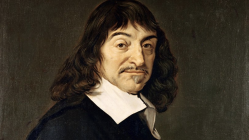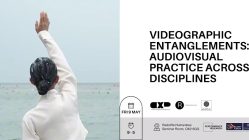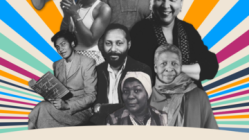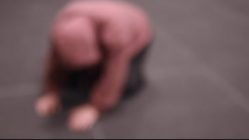This video talk was presented virtually as part of the ARC (art_research_convergence) series at University of Leiden. Prompted by a new collaboration with the Dutch Historical Acting Collective (DHAC), it explores the relevance of Elizabeth Freeman’s concept of “erotohistoriography,” developed in Time Binds: Queer Temporalities, Queer Histories, to the historiographic dimension of the Judaica Project. DHAC works with historical acting techniques and has begun to adapt the audiovisual embodied research method of Dynamic Configurations with Transversal Video (DCTV) to their practice. The video talk includes clips from DHAC’s first round of experiments with DCTV, as well as from the Judaica Project’s Songwork Catalogue.*
Members of the Dutch Historical Acting Collective:
Jed Wentz, Kat Carson, Laila Neuman, João Luís Paixão
Full audio recording, including Q&A (at 47:45) with DHAC and Eda Erçin:
ABSTRACT
What method for erotohistoriography?
Elizabeth Freeman’s “erotohistoriography” proposes that “contact with historical materials can be precipitated by particular bodily dispositions, and that these connections may elicit bodily responses, even pleasurable ones, that are themselves a form of understanding.”
This presentation advances the idea of an erotohistoriographical method by focusing on emerging audiovisual approaches to practice research in performing and embodied arts. What if the interplay of history and identity in the researchers’ own bodies were recognized as central to the research process? What if the inherently collaborative concept of the laboratory were taken as a starting point for research in arts and humanities? What if audiovisual production were understood not only as a source of objects for analysis but also as a form of scholarly publication?
The presentation examines audiovisual materials from the Judaica project, led by Ben Spatz, which explores jewish identity through audiovisual embodied research, as well as a new collaboration between Spatz and a lab run by actor-musician Jed Wentz at the Leiden University.
See also:
• Documentation of the (art_research_convergence) sessions on the Research Catalogue
• Documentation of this session on the Research Catalogue
Note: All Judaica clips in this talk are from the published Songwork Catalogue.






